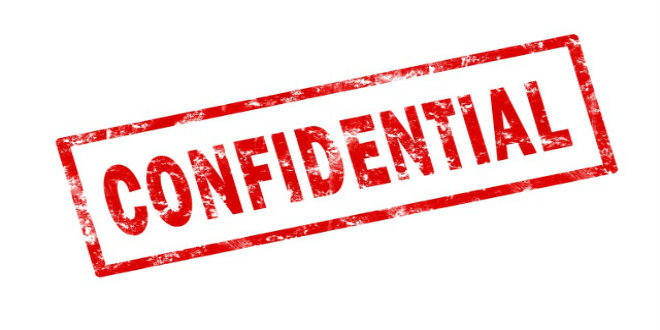Confidentiality refers to a situation in which information must be kept secret or private. Confidentiality is extremely important in most businesses as companies deal with sensitive information on a regular basis. This sensitive/secret data could relate to classified projects, clients, suppliers, employees, company finances, trade practices/agreements or a number
of other areas. For several reasons, it is imperative that this type of information remains confidential and that it is only accessible to approved/authorised individuals and groups.
Employers who deal with confidential matters, or who want their employees to use discretion with certain details that they learn throughout the course of their employment, should discuss confidentiality in their Employee Handbook.
An Employee Handbook, often referred to as the employee manual, is a document containing information about the Company and its policies and procedures. It is given to employees by
their Manager/Employer and employees should have to acknowledge (in writing) that they have read and understand it.
This manual is an excellent place to compile all important information pertaining to the Company rules and regulations. It can provide very useful details for new staff during the induction process; however, it can also be a good reference point for existing employees. An Employee Handbook gives clarity to employees, advises them in many situations and creates a culture where problems are addressed in a consistent and fair manner. Employees will know what to expect in certain scenarios because a comprehensive employee handbook outlines all of the relevant procedures.
An Employee Handbook communicates workplace and HR policies and can protect a business from expensive disputes with employees.
Some examples of items that should be discussed in the Employee Handbook are as follows:
- Annual Leave Entitlements
- Maternity Leave
- Performance Management
- Probation
- Discipline
- Bullying and Harassment
- Drugs/Smoking Policies
- Dress Code
Where relevant, confidentiality and employer expectations surrounding this should also be included in an Employee Handbook.
Employers should ensure that employees keep the following sensitive information confidential –
• Information that has been acquired during, or in the course of employment, or has otherwise been acquired by the employee in confidence;
• Information that relates to customers, suppliers or that of other persons or bodies with whom the Company has dealings of any sort;
• Information that has not been made public by, or with Company permission.
The Employer should ensure that all such information should remain confidential, and, save in the course of business or as required by law, should ensure that employees know that they are
not allowed to disclose the data to any person without the Company’s prior written consent (whether before or after the termination of employment).
Employees should have to exercise reasonable care to keep safe all documentary or other material containing confidential information. Employees should also be obliged to return any such material in their possession to the Company at the time of termination of employment, or at any other time upon demand.


Leave A Comment